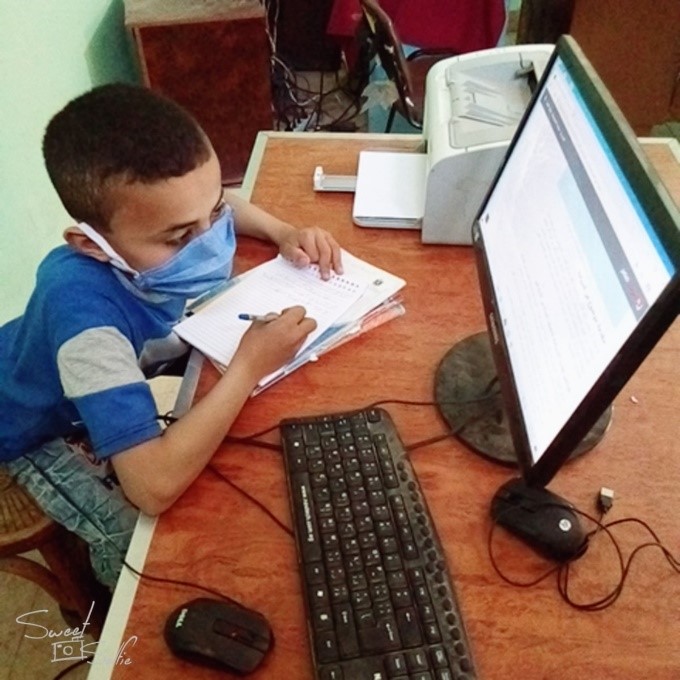Nothing can get in their Education’s way!

As in many countries around the world, the coronavirus outbreak led to sudden nationwide school closures across Egypt. The Ministry of Education decided that primary and preparatory students would be evaluated according to a number of research papers instead of taking final exams. the research papers need to be submitted before the end of the academic year in order to pass to the next grade.
The research papers however, require resources such as internet access and textbooks. The majority of small villages in Upper Egypt lack Internet connectivity, and many families do not own smart phones or computers to connect to. Risks of infection are also higher if families send their children to Internet cafes, where people can pay an hourly rate to access computers with an internet connection. Many children living in these villages are Unaware of how to deal with technological tools, such as computers, that are necessary in order to produce a research paper, due to the scarcity of such equipment in small villages.
“I panicked when I heard that I had to submit a research paper to pass to the next grade. I don’t have a computer at home. I share internet access with my neighbors so connection is very weak. I was lost and my parents felt helpless,” 11-year-old Hala* from Manfalut, Assiut said.
Save the Children’s Literate Village project, funded by the USAID, seeks to provide primary-school aged children and their mothers – in targeted villages in lower and upper Egypt with the necessary literacy skills to continue learning and self-improvement. To assist students in Assiut, and all other project intervention governorates, with their research papers, the project created WhatsApp groups to disseminate awareness messages on how to stay protected from Corona virus, to community teachers on a daily basis. Supervisors from the Ministry of Education also shared instructions on how to complete the required research papers on these groups, which supported teachers and parents with information and guidance, and followed up throughout the process.
“I heard about brokers selling prepared research papers to students in many villages nearby,” said Farah*, a primary school teacher. She added that other pupils could not receive sufficient support from their parents and this was when she decided to meet with her students at the school playground, while taking all hygienic precautions. “I divided them into groups and set topics for each team. I then explained the research, provided them with tablets, let the children collect the information they need from websites and books, and sat with them on another day to finish writing the papers.” Faten is one of many teachers who provided similar help to their students, with the support and supervision of Literate Village.
“We really enjoyed designing the covers of their research papers together,” Sara*, a sixth-grade teacher added. “I could sense the happiness and excitement on their faces. They looked much more relaxed than when I first met them after the Ministry’s decision to write research papers was first issued.”
Save the Children has been working closely with the Ministry of Education and community schools across Egypt since the outbreak of Covid-19 to support students and teachers adjust to remote learning. This has been done through awareness-raising messages on WhatsApp groups and distribution of education kits to Egyptian and refugee children and families. In addition, Save the Children provided training to peer educators and teachers on how to use online remote learning tools.
“My friends and I submitted our papers on time. We were relieved because we couldn’t imagine that we would receive this much support from our teachers and parents in such a short and hectic time. We are now waiting for our results and hopefully we will pass on to the next grade,” 13-year-old Adam* explained.
*All names have been changed for their safety.
 Egypt
Egypt